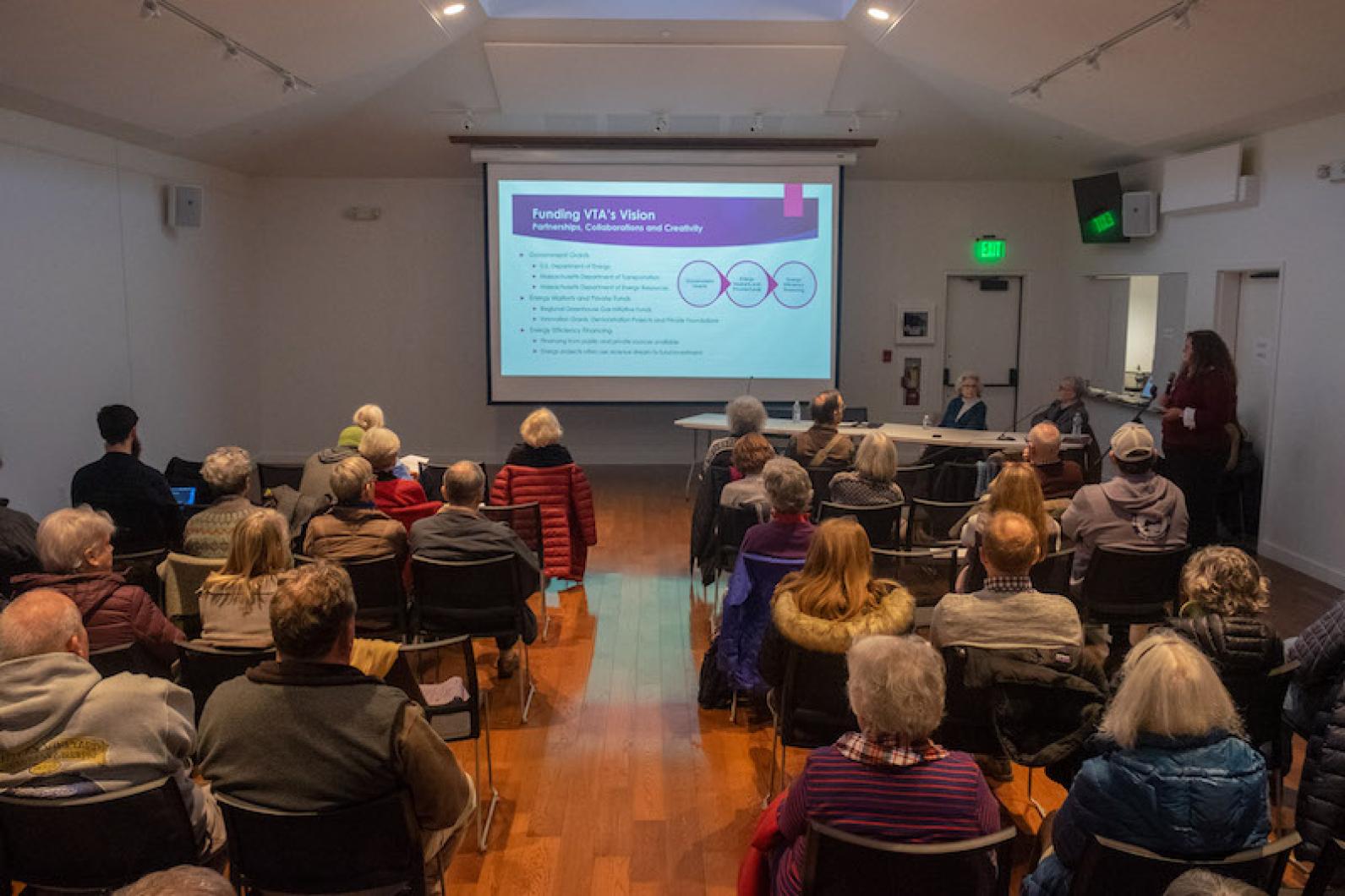Edgartown selectmen voted Tuesday to refer the Vineyard Transit Authority’s redesigned bus terminal and electric charging platform at Church street to the Martha’s Vineyard Commission for review.
The referral of the $1.4 million project to the regional commission follows recent pushback from aggrieved neighbors and residents in the town historic district, many of whom voiced their concern at a public hearing held Tuesday at the Edgartown Library.
At the hearing, VTA administrator Angela Grant presented the proposed plans for the project, including the installation of a new electric underground charging platforms. The plan also calls for a major redesign of the Church street bus terminal at the town visitor center, including the removal of a number of shade trees at the site. At a hearing last month, selectmen agreed to allow the trees to be removed, although they will require some tree replacement, and a linden tree at the site will have to stay.
Ms. Grant said the project will be funded through a $1.75 million federal clean energy grant that was awarded to the VTA in 2018 for electrifying the fleet of buses and building the charging station.
The presentation sparked lively debate.
Though many neighboring residents said they support a more environmentally conscious future for the VTA, they raised concerns that the new charging station would increase bus traffic on the already congested street in the heart of the village, and jeopardize the character of the town’s historic district.
“There is no reason on the face of this earth why electric chargers can’t be placed anywhere else,” said resident Jane Chittick, who has been an outspoken critic of the project. “Not in our downtown historic district.”
The historic district commission previously gave approval for the project.
Chris Scott, chairman of the town historic district commission, said while the bus terminal is not a typical use for the historic district, the infrastructure represents the town’s best effort of addressing a growing tourist population.
“It is a good faith effort to try to accommodate the reality of the hundreds of people that will be using this location,” he said. “The town . . . made a decision that this was the place buses bring people to town.”
Ms. Grant said after reviewing numerous options, the Church street terminal emerged as the most viable location for the charging station. Responding to concerns about increased traffic, she said charging buses would not cause the buses to stay longer at the terminal.
Highlighting ongoing tensions between recently unionized VTA drivers and management, bus driver Jason Chalifoux questioned the priorities of the public transit system. Among other things, he cited unprecedented winter service cuts this year and a budget deficit that partly stems from a new contract with drivers following a month-long strike last summer.
“Is the bus service even going to be around in a couple years, with all these cuts to service?” Mr. Chalifoux asked. “We want to make sure . . . our house is on order before we start putting down anything permanent.”
Ms. Grant said funding for the project is already secured through the federal grant and would not affect operating costs. And she said the fuel savings will help reduce operating expenses.
In the end selectmen Arthur Smadbeck and Margaret Serpa (selectman Michael Donaroma was not present) voted to refer the project to the MVC for review. But before voting, both voiced their approval for the bus terminal project.
“If we have to make a few sacrifices to get a completely electrified fleet, I think it’s worth it,” Mr. Smadbeck said.








Comments (18)
Comments
Comment policy »